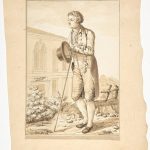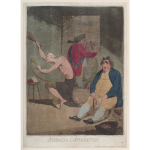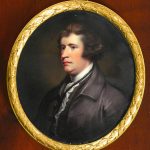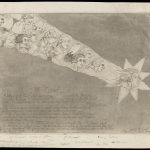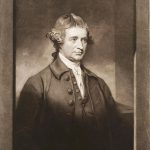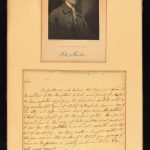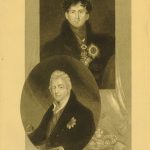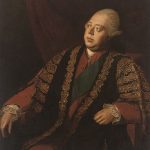Edmund Burke was an Anglo-Irish statesman and philosopher. Born in Dublin, Burke served as a member of parliament (MP) between 1766 and 1794 in the House of Commons with the Whig Party after moving to London in 1750.
Burke was a proponent of underpinning virtues with manners in society and of the importance of religious institutions for the moral stability and good of the state. These views were expressed in his A Vindication of Natural Society. He criticized British treatment of the American colonies, including through its taxation policies. Burke also supported the rights of the colonists to resist metropolitan authority, although he opposed the attempt to achieve independence. He is remembered for his support for Catholic emancipation, the impeachment of Warren Hastings from the East India Company and for his staunch opposition to the French Revolution.
Burke was born in Dublin, Ireland. His mother Mary, née Nagle (c. 1702–1770), was a Roman Catholic who hailed from a déclassé County Cork family and a cousin of the Catholic educator Nano Nagle whereas his father Richard (died 1761), a successful solicitor, was a member of the Church of Ireland. It remains unclear whether this is the same Richard Burke who converted from Catholicism. The Burke dynasty descends from an Anglo-Norman knight surnamed de Burgh (Latinised as de Burgo), who arrived in Ireland in 1185 following Henry II of England’s 1171 invasion of Ireland and is among the chief Gall or Old English families that assimilated into Gaelic society, becoming “more Irish than the Irish themselves”. Reference: Wikipedia
Portrait of The Right Honorable Edmund Burke (British, born Ireland, Dublin 1729–1797 Beaconsfield) Date:ca. 1815
Medium:Pen and grey ink with brush and brown washes.
Reference: The Metropolitan Museum of Art
‘Evening consolation’ (Edmund Burke; Frederick North, 2nd Earl of Guilford; Charles James Fox) by James Gillray, published by Hannah Humphrey hand-coloured etching and aquatint, published 25 February 1785 13 3/4 in. x 10 in. (349 mm x 254 mm) paper size
Reference: National Portrait Gallery
Henry Spicer A MINIATURE OF THE HON. EDMUND BURKE after Ozias Humphrey, bust length, wearing a dark purple coat with frilled shirt front and black ribband, oval, in gilt-bronze berried laurel frame, the back inscribed “The Right Honble Edmund Burke. from a crayon picture painted by Ozias Humphrey Esqr R.A. / H. Spicer, Portrait painter in Enamel to his Royal Highness the Prince of Wales. 1795,” enamel on copper sight 4 1/2 in.; framed 5 1/4 in.; 11.4 cm, 13.3 cm dated 1795
Edmund Burke (1729-1797) was an Anglo-Irish Whig statesman, author, and political theorist. He supported the American rebels and Catholic emancipation, but opposed the French Revolution. The original of this image is by Sir Joshua Reynolds; a studio copy is at the National Portrait Gallery, London. It was copied by Ozias Humprey in pastel (see Jaffares).
Sold for 7,500 USD at Sotheby’s in 2015
Aquatint entitled ‘The Comet’ by James Sayers. The Prince of Wales is at the head of the Comet and behind him in its tail are Edmund Burke, Sir Grey Cooper, Edward Stanley Smith the Twelfth Earl of Derby, Charles James Fox, Frederick North the Second Earl of Guilford, Thomas Powys the First Baron of Lilford, William John Kerr the Fifth Marquess of Lothian, David Murray the Second Earl of Mansfield, Charles Howard the Eleventh Duke of Norfolk, William Henry Cavendish Bentinck the Third Duke of Portland, William Douglas the Fourth Duke of Queensberry, Alexander Wedderburn the First Earl of Rosslyn (Lord Loughborough), John Montagu the Fourth Earl of Sandwich, John Sawbridge, Richard Brinsley Sheridan, John Warren, Richard Watson and Christopher Wilson.
18th February 1789 (published)
Sayers, James, born 1748 – died 1823 (artist) Cornell, Thomas (publisher)
Reference: © Victoria and Albert Museum
J Jones after George Romney The Right Hon’ble Edmund Burke Mezzotint, 1790, on laid, with margins, published Dec. 10th by J Jones, London; paper repair lower margin, paper tear into the plate right sheet edge, other various repairs at sheet edges, 510mm x 355mm (20 1/8in x 14in) (PL) (unframed)
Sold for £ 191 inc. premium at Bonham’s in 2003
Statesman, author, orator, political theorist, and philosopher (1729–1797) who, after relocating from Ireland to England, served for many years in the House of Commons. Considered a philosophical founder of modern conservatism, he is mainly remembered for his support of the American Revolution, and his later opposition to the French Revolution. Rare ALS signed “Edm. Burke,” one page, 7 x 7.5, April 1779. In part: “The gentleman who delivers this to you is a friend to the authour of the Pamphlet which accompanies it. As far as I am capable of judging, the Subject is handled with a very considerable degree of ability—& though the opinions toward the latter end differ a good deal from mine, the publick I think may profit by the discussion of them. How far it may suit you in the way of…you can best judge; or how far the publick is or is not satiated with this sort of speculation. On these matters I ought rather take your opinion than to attempt to lead you by any of mine, as the Authour is wholly unknown to me.” Matted and framed with an early stipple engraving by John Henry Robinson (with facsimile signature) to an overall size of 10.25 x 17.5. In fine condition.
Sold For $3,768 at RR Auction in 2019
